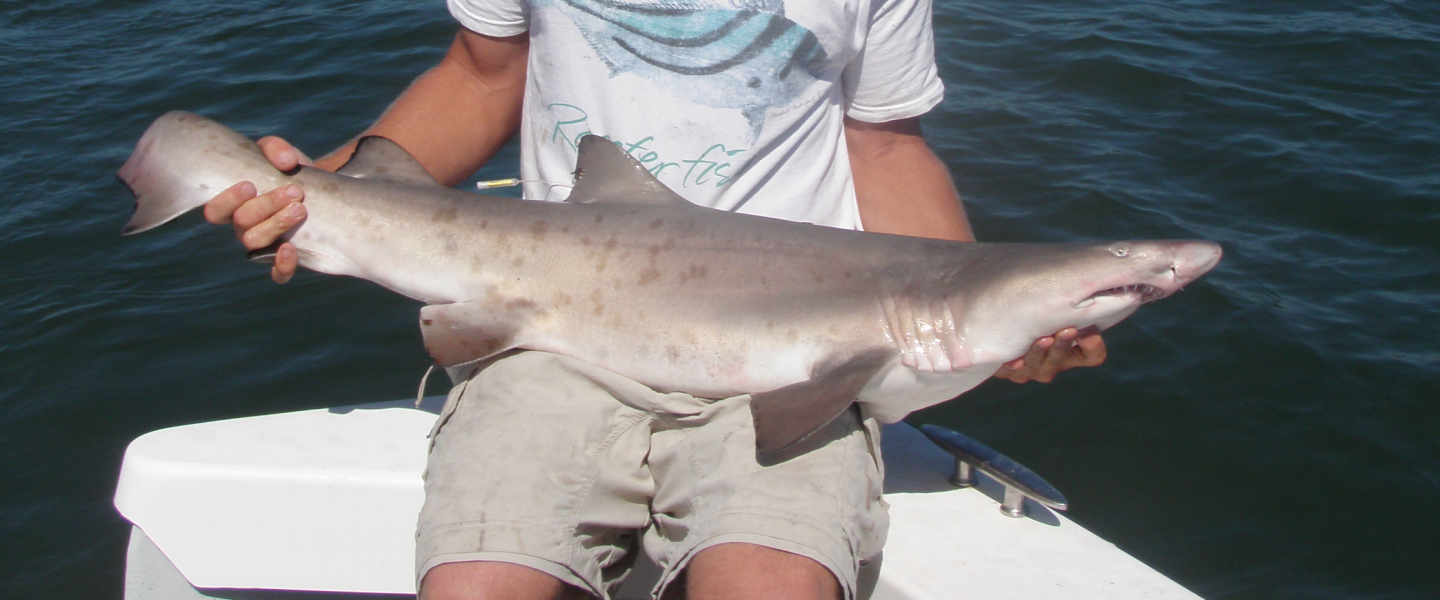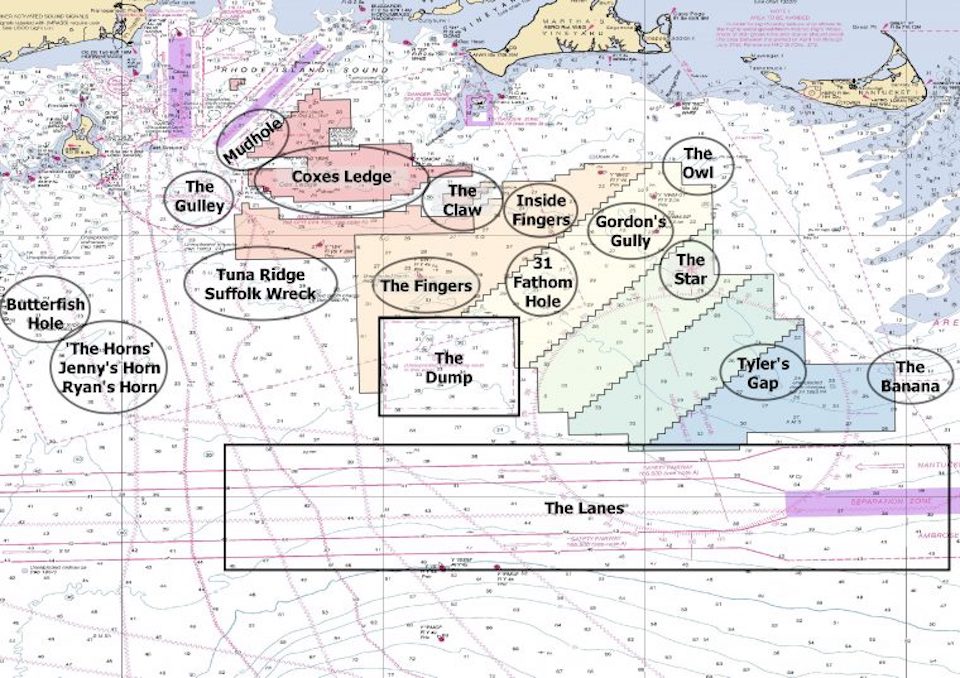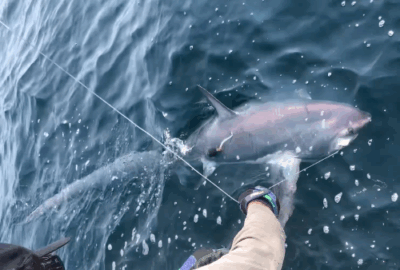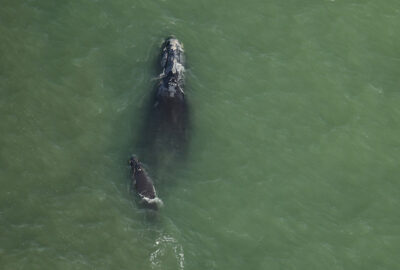The Winds of Change
Understanding the effect of offshore wind development on recreational fishing
By Jeff Kneebone, PhD on Friday, September 27, 2019


Project investigators: Dr. Jeff Kneebone (ACCOL), Connor Capizzano (University of Massachusetts Boston), Crista Bank (Vineyard Wind)
During the warm summer months, the offshore waters off southern New England have long supported populations of pelagic fish species such as sharks, tuna, billfish, mahi mahi, and wahoo. These waters not only serve as important feeding grounds and migratory corridors for numerous species, but also represent popular recreational fishing grounds where hundreds of fishing vessels actively pursue iconic species such as bluefin and yellowfin tuna, white marlin, and shortfin mako sharks each year.
However, pelagic fish and recreational fishermen will in the near future have to share southern New England waters with a new resident—offshore wind farms. Over the past 10 years, more than 1 million acres of southern New England waters spanning from Block Island to Nantucket Shoals have been leased for offshore wind development.

Due to the planned development, there is a great need to understand the potential impact of offshore wind infrastructure on the fish species that inhabit the area and the local fisheries that target them. At present, a great deal of information is available to investigate how offshore wind development may impact commercial fishermen in southern New England. However, very little information is currently available to investigate how such development may impact recreational fishermen, particularly those who target pelagic fish.
To begin to understand how recreational fishing for pelagic fish may be impacted by offshore wind development in southern New England, the Anderson Cabot Center for Ocean Life has partnered with Vineyard Wind to develop an online survey to characterize both the nature and extent of recreational fishing effort for pelagic fish that has occurred in this region over the past five years. This quick and easy survey will hopefully provide new insights into the importance of this region for recreational fishing.
If you are a recreational fisherman who likes fishing for large pelagic fish in southern New England (or if you know someone who is) please take our survey!




